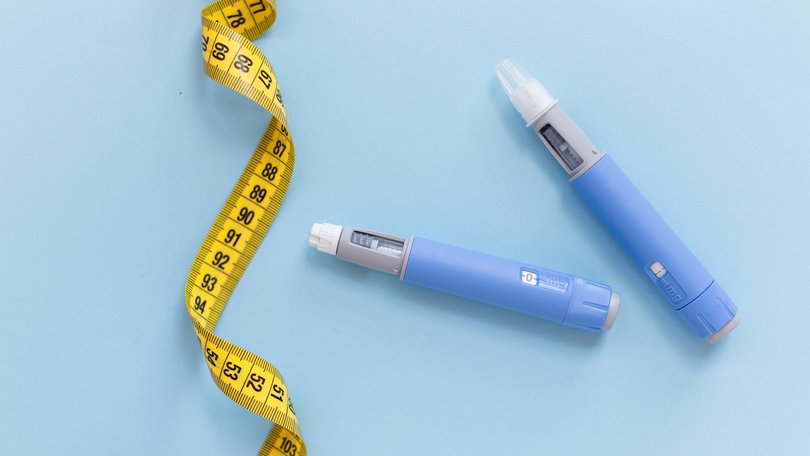WASHINGTON POST: What you should know before taking a weight-loss drug like Ozempic, Wegovy or Mounjaro
THE WASHINGTON POST: Before you take Ozempic or Wegovy, here’s what doctors want you to know.

GLP-1 medications are a major breakthrough for people to shed pounds and manage conditions such as Type 2 diabetes. However, doctors say there’s a perception that weight-loss drugs such as semaglutide (brand names Ozempic and Wegovy) and tirzepatide (Mounjaro) are all you need to live a healthier life.
Diet and exercise still matter, said JoAnn Manson, chief of the division of preventive medicine at Brigham and Women’s Hospital in Boston.
“They remain crucial,” Dr Manson said.
Sign up to The Nightly's newsletters.
Get the first look at the digital newspaper, curated daily stories and breaking headlines delivered to your inbox.
By continuing you agree to our Terms and Privacy Policy.“If you’re not paying attention to protein intake, hydration and having regular physical activity — especially resistance training — you can end up with poor nutritional status and substantial muscle loss.”
GLP-1 drugs mimic a hormone the body produces to regulate hunger and blood sugar. The injections cut cravings for food, slow digestion and keep people feeling full for longer periods of time.
However, since the drugs affect the stomach’s functions, they also can cause gastrointestinal side effects such as nausea and vomiting. Some people stop taking the drugs because of these gut symptoms.
Still, Dr Manson said, with some “relatively straightforward” changes in behaviour, people can minimise these problems and continue using the drug.
Dr Manson is a co-author of two articles — one for clinicians and another for patients — that were recently published in JAMA Internal Medicine. Here are five things Dr Manson and her co-authors want people on these medications to know.
1. The weight you lose might include muscle, too
These medications can help someone lose around 15 to 21 per cent of their body weight. But a significant portion of that weight - up to one-fourth - can be lean body mass and muscle, Dr Manson said.
2. It can help to start every meal with 20 to 30 grams of protein
This protein can come from chicken, fish, beans, chickpeas or tofu, Dr Manson said. Aim for 1 to 1.5 grams of protein each day per kilogram (2.2 pounds) of body weight. If you don’t have an appetite or are eating smaller meals, you may want to try drinking a protein shake throughout the day as a supplement.
Dr Manson and her co-authors suggest filling a plate this way: half fruits and vegetables, one-quarter protein, and the rest whole grains.
3. Resistance training two to three times a week can build muscle
You can strengthen your muscles with bands, weights and body-weight exercises to counteract the potential loss in lean body mass, Dr Manson said.
Aim for 60 to 90 minutes of resistance training and 150 minutes of aerobic exercise, such as brisk walking, per week.
4. It’s a good idea to drink more water
Water can help with the dehydration and constipation associated with the weight-loss drugs, said Dr Manson, who recommended 8 to 12 glasses per day. You also can eat water-rich foods such as cucumbers and watermelon to stay hydrated.
And the researchers recommend that people on GLP-1 drugs limit their intake of alcohol, caffeine, and sugary or artificially sweetened beverages.
5. You should avoid lying down for two to three hours after a meal
This may help reduce your risk of heartburn. Add fibre to help with constipation, and avoid high-fat foods - or fried foods - because they can worsen feelings of nausea.
What do other experts say?
Andres J Acosta, an associate professor of medicine and a consultant in gastroenterology and hepatology at the Mayo Clinic, who has also consulted for Novo Nordisk and Eli Lilly, and has co-founded two weight-loss-associated companies, Phenomix Sciences and Gila Therapeutics, said he often finds that patients have a “preconceived notion” that they just need to take the medication and they’ll lose weight.
But the clinical trials for these weight-loss drugs included “comprehensive programs” with lifestyle interventions for a calorie-reduced diet and exercise program.
“This perception — just take the shot and don’t do anything else - is wrong. It’s not going to drive real, long-term behavioural changes,” said Professor Acosta, who is a co-author of The Mayo Clinic Diet: Weight-Loss Medications Edition. “Patients aren’t going to see the outcomes that we’re seeing in the trials.”
The GLP-1 medications are one tool in a broader weight-management program, Professor Acosta said. He tells people they still need to have a healthy diet, with “a good amount of protein” and enough water to stay well hydrated.
“I like to set the expectations from the get-go,” Professor Acosta said.
“And I also tell them that not everyone is going to lose weight.”
Some people will gain back weight when they stop taking these medications, said Elizabeth Mietlicki-Baase, an associate professor of exercise and nutrition sciences at the University of Buffalo.
Researchers are interested in “finding strategies to prevent weight regain after discontinuation,” she said.
“But we don’t have a great handle on that just yet.”
(c) 2025 , The Washington Post
